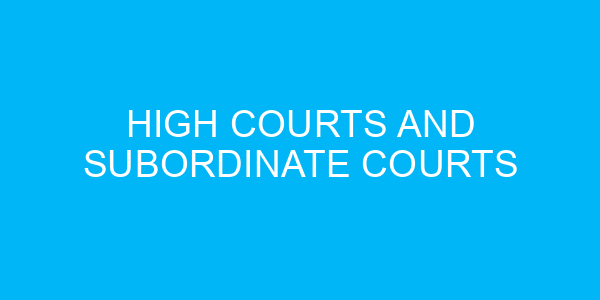61. Who presides over a District Court?
a) The District Magistrate
b) The Chief Judicial Magistrate
c) The Sessions Judge
d) The Chief Justice of the High Court
62. Which one of the following statements is true about the jurisdiction of a District Court?
a) It has unlimited jurisdiction over all civil and criminal matters
b) It has exclusive jurisdiction over constitutional matters
c) It has appellate jurisdiction over cases decided by High Courts
d) It has no jurisdiction to decide cases independently
63. The decisions of a District Court on questions of law are binding on:
a) Lower courts within the district
b) Lower courts in other districts
c) Subordinate courts within the state
d) All courts within the country
64. Which one of the following statements is true about the powers of a District Court?
a) It can issue writs to enforce fundamental rights
b) It can review the decisions of higher courts
c) It can strike down laws inconsistent with the Constitution
d) It exercises judicial powers within its prescribed jurisdiction
65. The Chief Judicial Magistrate in a district is responsible for:
a) Supervising the lower courts in the district
b) Conducting trials in criminal cases
c) Administering the district judiciary
d) Appointing judges to the District Court



